Welcome to another issue of The Newport Cornucopia where we dig through the newspapers archives for interesting news articles and adverts. All articles are posted verbatim and most headlines are original (headlines in quotes are my own).

‘A New and Spacious Street’
A new and spacious street, leading from and almost in a direct line with Commercial Street into Baneswell, is now in the course of formation, which will be a wholesome an highly beneficial improvement over the narrow, dark, and dirty old Baneswell Road. The new streets lying between the South Wales railway and Baneswell Road Are being coated with a layer of stone, or rather sea-beach shingle. Several new buildings, which will give those streets a finished aspect, are in the course of erection. New streets are being laid out, and building is going rapidly forward On the north and west sides of Baneswell — now a populous and important district — not withstanding the cry of “the wolf is at the door,” building sites are eagerly sought for and taken up in that healthful neighbourhood.

North of the South Wales station, at the foot of the Gold Tops, a row of handsome uniformly built houses, extending about a furlong, and names Devon Road, have been erected, and are in course of completion, by Mr L.B. Moore, and they will be approachable by a convenient road leading from Pentonville, descending and skirting the foot of the hill, and into Baneswell across the railway near the tunnel.

— The Cardiff Times, Saturday 12th March, 1859



Seen and Heard
[By Argus]
Down with the drink
I hear that some surprise was caused by a party who went from Newport to Abergavenny a few days since. On each side of the conveyance by which they travelled they had large posters, "Down with the drink."
But they were not a teetotal party. In the vehicle they had a cask of ale — an 18-gallon cask I am told — and they manfully endeavoured to carry out the sentiments expressed on their posters.
It was a case of "Down with the drink" — but down their throats. This brilliant idea was, indeed, worthy of a bemuddled brain.
— South Wales Argus, Saturday 8th October, 1892
The Muddy ‘Bridge Street’ Bridge
Now that the Corporation are well under weigh [sic] with the work at the dip, they might perhaps turn their attention to the bridge of the Great Western Railway between Bridge Street and Clytha Park Road. On each side the pavements come to a full stop, as the bridge is only the width of the roadway, and foot passengers have to walk through the mud and puddles which have been so plentiful of late.
Probably under the Company's Act the bridge is in accordance with the requirements of the law, but the Town Council of to-day should make good the defects which the short-sightedness of an earlier generation sanctioned. If the bridge as a whole could not be widened, it would be an easy matter to construct footways outside the present parapets, and thus save pedestrians — among whom, of course, ladies are the chief sufferers — from having to walk through the wet and dirt.
— South Wales Argus, Saturday 1st October, 1892
'Boys Supplied Wholesale'
As I passed through Baneswell on Good Friday morning my attention was arrested by two written posters in shop windows — "Boys supplied, wholesale." I shall be very pleased to give the address to disappointed fathers. But perhaps it only meant that buns were supplied wholesale to boys.
Every season brings its special curse. At Christmas the waits disturb our rest; on Good Friday the bun-boys salute the morn with their unearthly din. Soon after five o'clock we were awaken by shrieking fiends.
One a penny,
Two a penny,
Hot cross buns
they chanted, and after murmuring mild maledictions the indignant householder would compose himself to sleep .
No sooner had he dosed (sic) off comfortably than another lad would pass yelling the same announcement. As that lad became inaudible, one became conscious of two voices afar off approaching from different directions. Of course, one tried to about louder than the other, and the end was not peace. There was nothing for it but to get up. wWhere the bun-boy is within hearing sleep is impossible.
— South Wales Argus, Saturday, 4th April, 1896

Crindau Pigeon Match
On Tuesday last, several hundreds of persons assembled in a field, under Crindau farm, to witness a match which had excited considerable interest, between John Flowers, a blacksmith, of Pillgwenlly, and Samuel Gage, of Bristol, for £5 a side, to shoot at ten birds each, twenty-one yards trap. The betting at starting was in favour of Gage, who was accompanied to the field by a host of Bristolians.
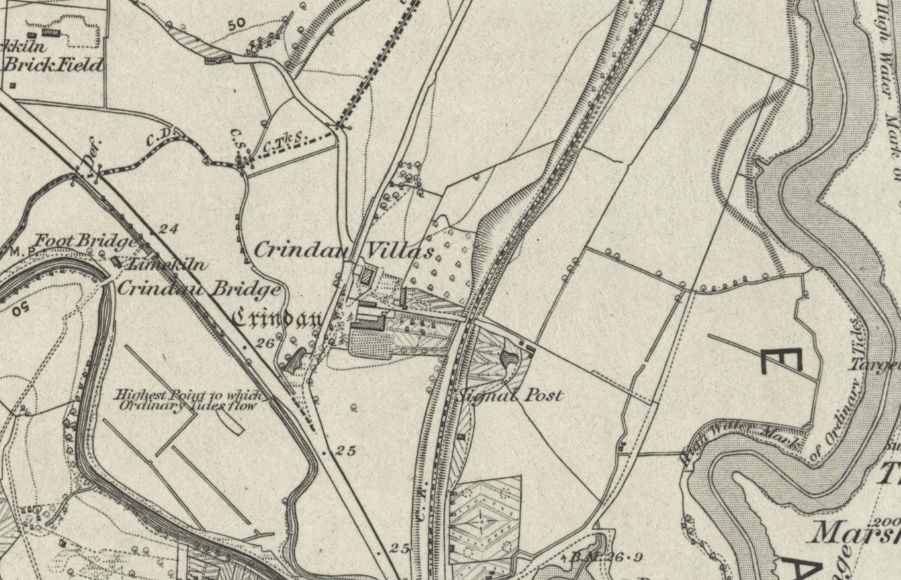
Flowers, a modest unassuming young man, appeared friendless, until a sporting "landlord," and one or two others, laid out some money upon him. He went in, and killed his first four birds, missed the fifth, but killed the remaining five. Gage missed his first, killed the next three, missed the fifth, killed the next two, and missed the eighth. Flowers consequently won easily; it was generally thought he would have killed his fifth bird, had not the string of the trap broken, and the front part of the trap remaining up, hid the bird from his view.
Considerable sums of money changed hands the "Gage" party, who had booked their man to win, looked unutterable things at the result. Mr. John Walker and Mr. Dowle, acted as umpires, and gave satisfaction to both parties.
— Monmouthshire Merlin, March 1st, 1851

Horrible Dens Abandoned
Commercial Street recently possessed two of the vilest holes of sin and wickedness.
The corners and lounging places of the thoroughfare were daily and nightly infested by abandoned women, whose abominable language was commonly addressed to every passer by, male or female, in the coarsest and most offensive manner.
It was a nuisance with which the police could scarcely contend, while open doors awaited the momentary escape of the foul-mouthed creatures, on the approach of the officers. At length, however, the public will be glad to know, that the notorious Plume of Feathers beer-house, at the corner of Cross-street, had been deserted, making the second "closing" occurring within a few weeks, through the unrelaxing exertions of Mr. English, who, with his force, have exhibited the most commendable desire to rid the neighbour-hood of those pests, the notorious keepers of bagnios [brothels].
We trust, that wherever such plague-spots make their appearance, the superintendent will be equally on the alert for their suppression. Well-conducted inhabitants, and the owners of property, where such pest houses are open, have a claim for the interference of the authorities, which cannot be over-looked. It would be well that landlords should introduce a special clause into their agreements with tenants, as to some houses, prohibitory of permitting them to be converted into ill-famed beer-houses, under certain penalties.
— Monmouthshire Merlin, March 1st, 1851

Sturgeon Caught in the Usk
There is on view in Messrs. E Fennell and Sons window, High Street, Newport, a very fine sturgeon. The fish weighs 133 pounds, and measures from the snout to the base of the tail six feet, or nearly sever feet to the tip of the tail fluke. It was caught in the Usk between Newport and Caerleon Bridges on Monday night by one of the salmon fishermen, after a tough struggle, and it still displayed signs of life as it lay on the fishmonger’s slab this morning. In 1860, Messrs. Fennell despatched to the Prince of Wales a sturgeon which was captured at the Goldcliffe fisheries, and it was suggested that, packed in ice, the present catch would male a novel present to Prince George and Princess May. This is the first time a sturgeon has ever been captured in the Usk.
— South Wales Weekly Argus, Saturday 17th June, 1893

‘Automatic Stamp Machine Installed in Maindee’
The additional clearance of letters at 11:30pm which will shortly come into force here, will certainly be a great boon to the inhabitants of this growing suburb; and on Saturday afternoon last an automatic stamp machine was placed outside the premises of Mr Wm. Watkins, Chepstow Road. This machine will, on receipt of one penny, give anyone a memorandum book, envelope, and penny postage stamp, at any hour of the day or night. In return for this privilege, the grateful public is expected to read the advantages of Scrubs’s soap and Searcher’s pills, and other matters in the book.
— South Wales Weekly Argus, Saturday 17th June, 1893



Stole the Milk
“Children are recommended milk, aren’t they?” remarked the Clerk (Mr T. Summers) at Newport Children’s Court on Wednesday, during the hearing of a case in which an eleven-year-old boy was summoned of stealing quantities of milk.
Evidence was given by PC William Davies that he ordered the boy at 7.25 on the morning of Feb 23, coming form his home in his stockinged feet, cross the road, and go into a doorway. Later, he came back, and the policeman accosted him. The bottle contained 3/4 pint of milk and the boy admitted he had taken it from the bottle belonging to the people whose doorway witness saw him enter. Defendant admitted that he had committed the offence on two previous occasions, and added that it had been going on for about weeks.
A lady who gave evidence concerning the ownership of the milk appealed to the Bench to be lenient with the boy.
The boy agreed that he was given money to buy the milk, but spent it on sweets, and stole the milk.
He was discharged with a caution.
— South Wales Weekly Argus, Saturday, 5th March, 1927
Ridiculous Speed
Reginald Victor Finnigan, of Newport, a 'bus driver for the Blue and White 'Bus Company was summoned at Newport on Saturday for driving a 'bus in a dangerous manner on the main Chepstow-Newport road on February 10, at Langstone.
The prosecution was the sequel of an accident, when, it was alleged, defendant cut out from behind a stationary car, crashed into it, and carried it two lengths.
The owner of the stationary car said he was thrown into a hedge. Another car, which was approaching in the opposite direction, was also damaged.
A witness stated that Finnigan was driving at 30 to 35 miles per hour — a ridiculous speed, he added.
Finnigan denied this, and said he was travelling at 15 miles per hour, and a passenger attributed the accident to Finnigan not accelerating when the accident was imminent. He was fined 40s including costs.
— South Wales Argus, Saturday 1st March, 1930
Pitch and Toss
Robert Tolcher was fined 2s 6d for playing pitch-and-toss in Mendalgief Road on Sunday afternoon.
— South Wales Weekly Argus, Saturday 4th November, 1893
Charge of Reckless Driving and a Case of Mistaken Identity
At Newport Court, on Wednesday, David Evan’s was summoned for furiously and recklessly driving a horse and cab in Commercial Street. Mr W.L. Moore defended. Sergeant Dukelow stated that about seven on Saturday night, he saw a handsom being driven at a great rate in the direction of the station. A couple of gentlemen were going from the corner of the National Bank Buildings to get to the Maindee ‘bus. The horse and shaft came into contact with one of them, a Mr W.M. Locke, and hurt his leg very much. The cabman stopped about a second and then drove on. Witness did not see face, but judging from his back he considered it was Evan’s.
PC R0wlands corroborated, giving his opinion that Evan’s was driving at the rate of 10 miles an hour. R Browning also supported the prosecution. Mr Moore said he would bring overwhelming evidence to prove that the police were mistaken. He submitted that the accident referred to had been caused by another cabman who closely resembled defendant, and drove a cab of the same sort. Three cabmen gave evidence to having seen Evan’s drive a proper pace. One of them stated there was another cabman who very much resembled Evan’s. The conductor of the ‘bus which had been standing at the bank when the accident occurred said the driver of the hansom stopped, and asked if the gentleman was much hurt. The gentleman replied he was not, and the cabman drove on. Witness did not think Evans was the driver. The case was dismissed.
— South Wales Weekly Argus, Saturday 4th November, 1893
The Spotted Man
James Moriarty, Club Row, was summoned before Newport Bench on Monday for being drunk in the King William beerhouse. On Thursday evening the police ejected defendant from the public house at the request of the landlord. This duty done, defendant went quietly home. The landlord stated he had refused to supply him with drink. Defendant, when sober, was always a civil man.
Superintendent Sinclair: This is his 37th appearance.
Defendant made a speech to the Bench. He was, he said, what they might call a spotted man. This case could have been blown over, for every person who was ejected from a public house was not summoned but the police. Being a spotted man, the police prevented him from getting an honest livelihood. The Bench replied it seemed to be all his own fault. Fined 10s or seven days.
— South Wales Weekly Argus, Saturday 4th November, 1893
‘Stealing Growing Underwood’
William Morgan, Newport, ordered to be confined in the cells for one day for stealing growing underwood on Monday at Bettws.
— South Wales Weekly Argus, Saturday 4th November, 1893
Stealing a Flannel
Andrew Joy, alias Samuel Walby, and Eliza Harris, were changed with stealing a flannel shirt, value 3s., the property of Edward Thomas. Sergeant Curtis said he apprehended the prisoner Joy, on Thursday, on suspicion of stealing the shirt. On his way tot the station the female prisoner spoke to him, and he (witness) suspecting her to be in connection he took her into custody. The female searcher said she searched the female prisoner, and on her person found the shirt produced. Mary Bum said she washed the shirt (produced) for Edward Thomas, to whom it belonged, and put it on the partition wall between her house and the “Pontypool House” beer house. She missed it in the afternoon. Five minutes before she missed it from the wall she saw Joy in the garden of the Pontypool House. She gave information to the police. The superintendent said the male prisoner was convicted of vagrancy at this court last August, under the name of Samuel Walby. He was sentenced to to 21 days imprisonment with hard labour at Usk. The female was discharged.
— The Cardiff Times, Saturday 22nd January, 1859





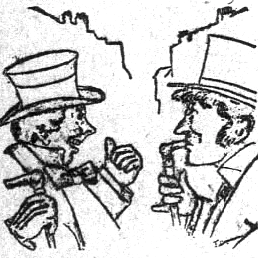
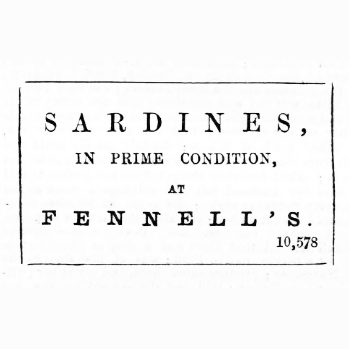
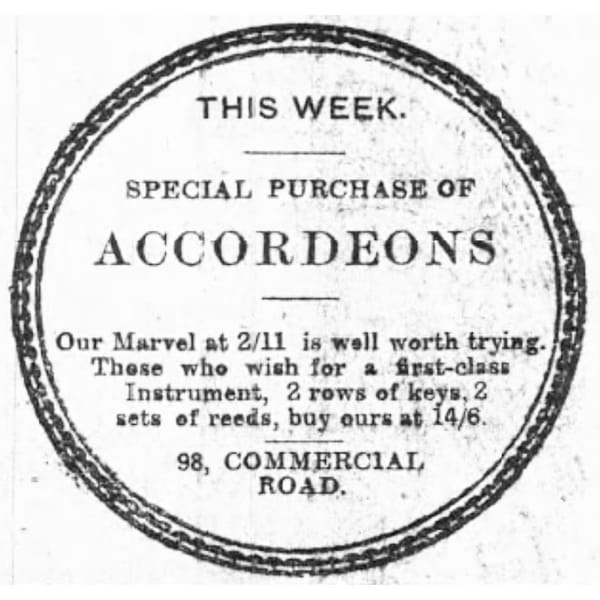
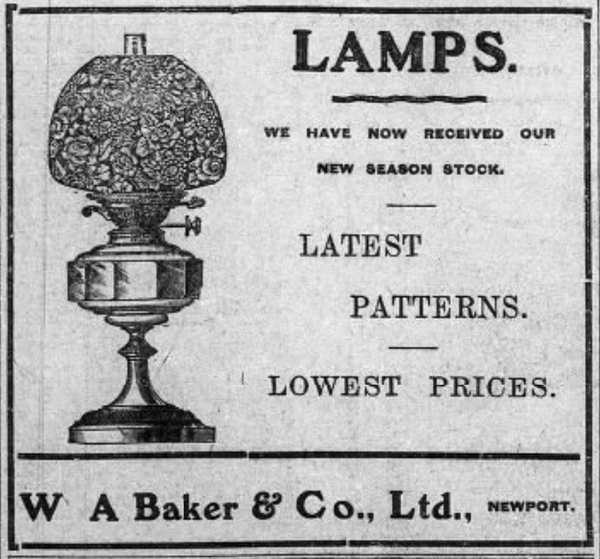

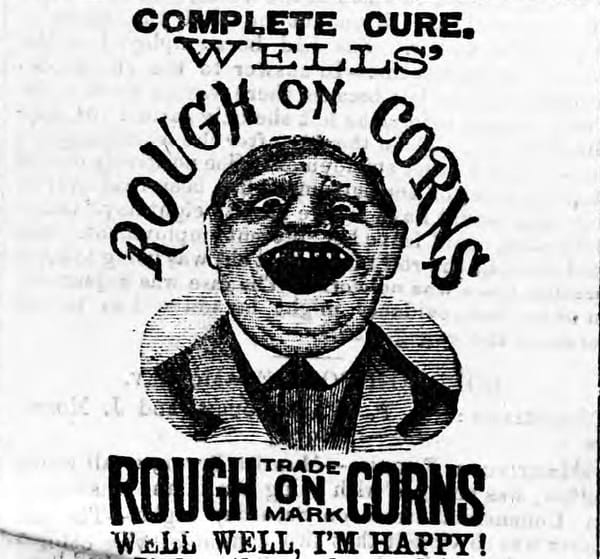
Member discussion